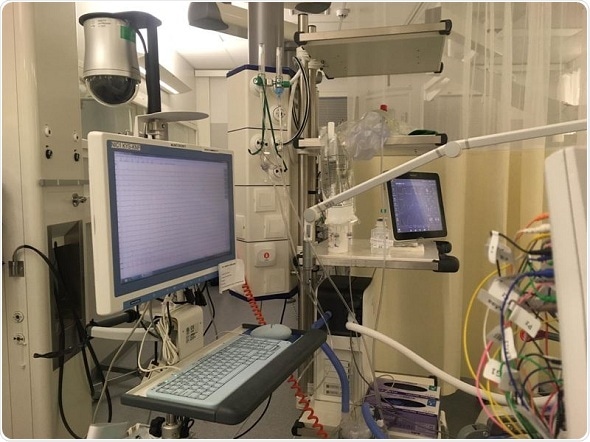A new study published in Seizure gives insight into the short-term outcome of patients treated for status epilepticus in Kuopio University Hospital in Finland. The researchers found a 9% risk of death and a 32% risk of functional loss at one month after status epilepticus. The patient’s risk of death could be predicted relatively reliably already in the emergency room by using status epilepticus-related prognostic tools.

The mortality risk of status epilepticus can be determined already in the emergency room. Photographer: Reetta Kälviäinen
The study, conducted by the University of Eastern Finland and the Epilepsy Centre in Kuopio University Hospital, enrolled 137 status epilepticus patients during 2015. Fourteen patients were enrolled twice because of another episode of status epilepticus during the study period. The outcome was assessed at one month after hospital discharge by means of a phone interview and a patient record review.
The prognostic scores STESS (Status Epilepticus Severity Score) and EMSE (Epidemiology-based Mortality score in Status Epilepticus) proved themselves useful in mortality prediction. They were both able to predict survival with over 95% certainty in many episodes of status epilepticus with low risk features. The scores are simple enough to be calculated in the emergency room. They require information about the etiology and clinical presentation of status epilepticus, and the age and comorbidities of the patient.
Status epilepticus is a prolonged epileptic seizure that lasts for more than 30 minutes. Status epilepticus is a life-threatening emergency which requires rapid treatment. Any epileptic seizure lasting longer than 5 minutes is treated as an early status epilepticus. Status epilepticus can occur even without a prior diagnosis of epilepsy.
Source:
Journal reference:
Sairanen, J. J., et al. (2020) Outcome of status epilepticus and the predictive value of the EMSE and STESS scores: A prospective study. Seizure: European Journal of Epilepsy. doi.org/10.1016/j.seizure.2019.12.026.